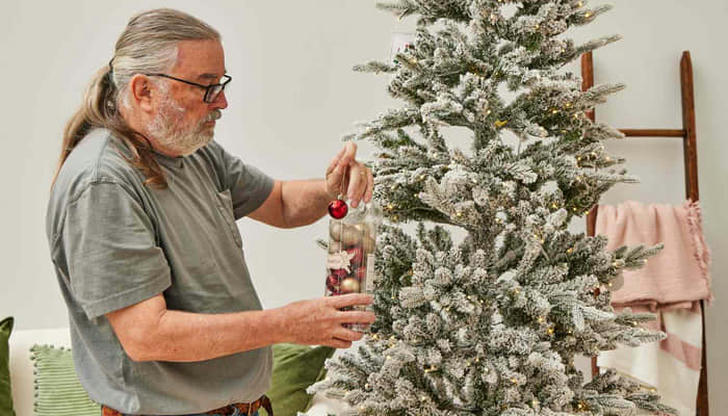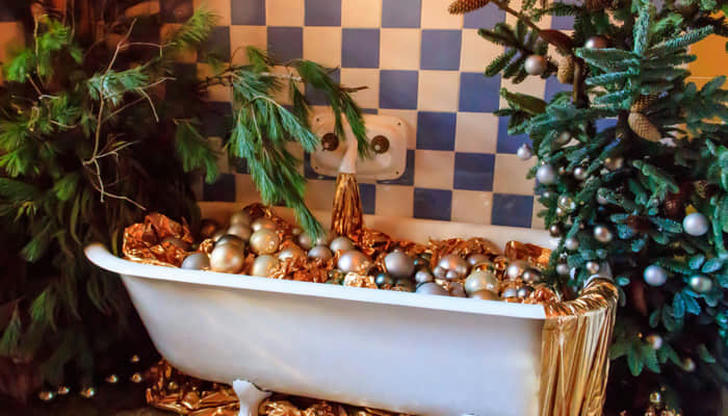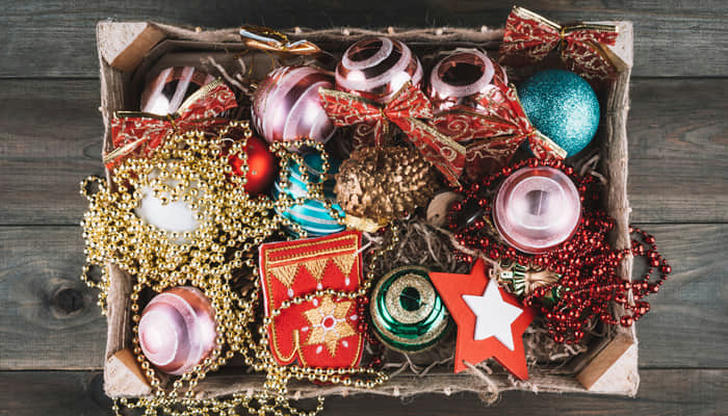Should You Clean Your Artificial Christmas Tree? What to Know for a Long-Lasting Tree

Each year, new trends and tips emerge for holiday decorating, and this season, one question that's sparking curiosity is: should you clean your artificial Christmas tree?
While it might seem excessive during the busy holiday season, many enthusiastic decorators swear by giving their artificial trees a thorough wash annually.
Even if your tree is stored in an airtight container, dust, dirt, and even bugs can still find their way in over the course of 11 months. Plus, as your tree sits out on display, it naturally collects dust.
However, washing your tree right before packing it away isn’t ideal, as it might not dry completely before being stored.
If you're planning to clean your tree this year, the best time to do it is at the start of the season!
How to Wash an Artificial Christmas Tree
If you’ve decided to give your artificial tree a thorough cleaning, the next question is: how should you go about it? Many people recommend washing the tree in the bathtub. This involves carefully cleaning the tree in sections before setting it up, swirling the branches in a tub filled with water.
Some decorators even add a bit of dish soap to the water. While it’s not absolutely necessary—most of the dust will come off with water and movement—if you’re committed to washing your tree, you might go all-in with the "spa treatment."
Skipping this step can pose issues for those with allergies or sensitivities, as it’s not just dust accumulating on your tree but also allergens.
If washing isn’t an option, you can take your tree outside and shake it vigorously to remove debris. For a quicker solution, some use a leaf blower to dislodge dust and allergens. Just be cautious—standing too close or using a high-power setting could damage fragile branches.
If you don’t have the space to wash or shake your tree, there are gentler alternatives. You can use a duster or cloth to clean each branch individually, and doing so weekly while the tree is up will help keep it cleaner for longer. For a deeper clean, a damp cloth can be used to wipe down each branch, offering a more delicate approach than submerging the entire tree in water.

Should You Really Wash Your Artificial Tree?
Some artificial trees may actually lose their warranty if you wash them, which is a clear sign that washing could damage certain types of trees. If you’re worried about this, sticking to dusting the branches is likely your safest option.
But if holiday cleaning feels like too much, you might wonder: do you really need to clean your artificial tree? The answer might be no. Plenty of artificial tree owners enjoy their holiday season without ever cleaning their tree. It’s not a necessity, especially if your tree is stored in a sealed container.
The one exception could be if your tree is white or a light color. A quick rinse might help brighten it up and restore its shine.
However, if your tree is pre-lit or flocked, cleaning options are more limited. Water can damage the lights, and dusting may remove the artificial snow, so it’s best to handle these trees with extra care.

Should You Wash Other Holiday Decorations?
If you’ve never thought about rinsing your real Christmas tree before bringing it inside, it might be worth adding to your holiday prep this year—especially to get rid of any bugs. That said, your tree has already been exposed to the elements and will likely be fine if you let it sit on your porch for a few days before bringing it indoors.
What about other leafy holiday decorations? For more delicate items like wreaths and garlands, a gentle dusting can work wonders. If you want to remove stubborn dust, a hairdryer can be a great alternative to a leaf blower for these smaller decorations.
This is particularly helpful for outdoor wreaths, which tend to collect more dirt than indoor items. As always, be cautious with decorations that include string lights or artificial snow, as they require extra care to avoid damage.

